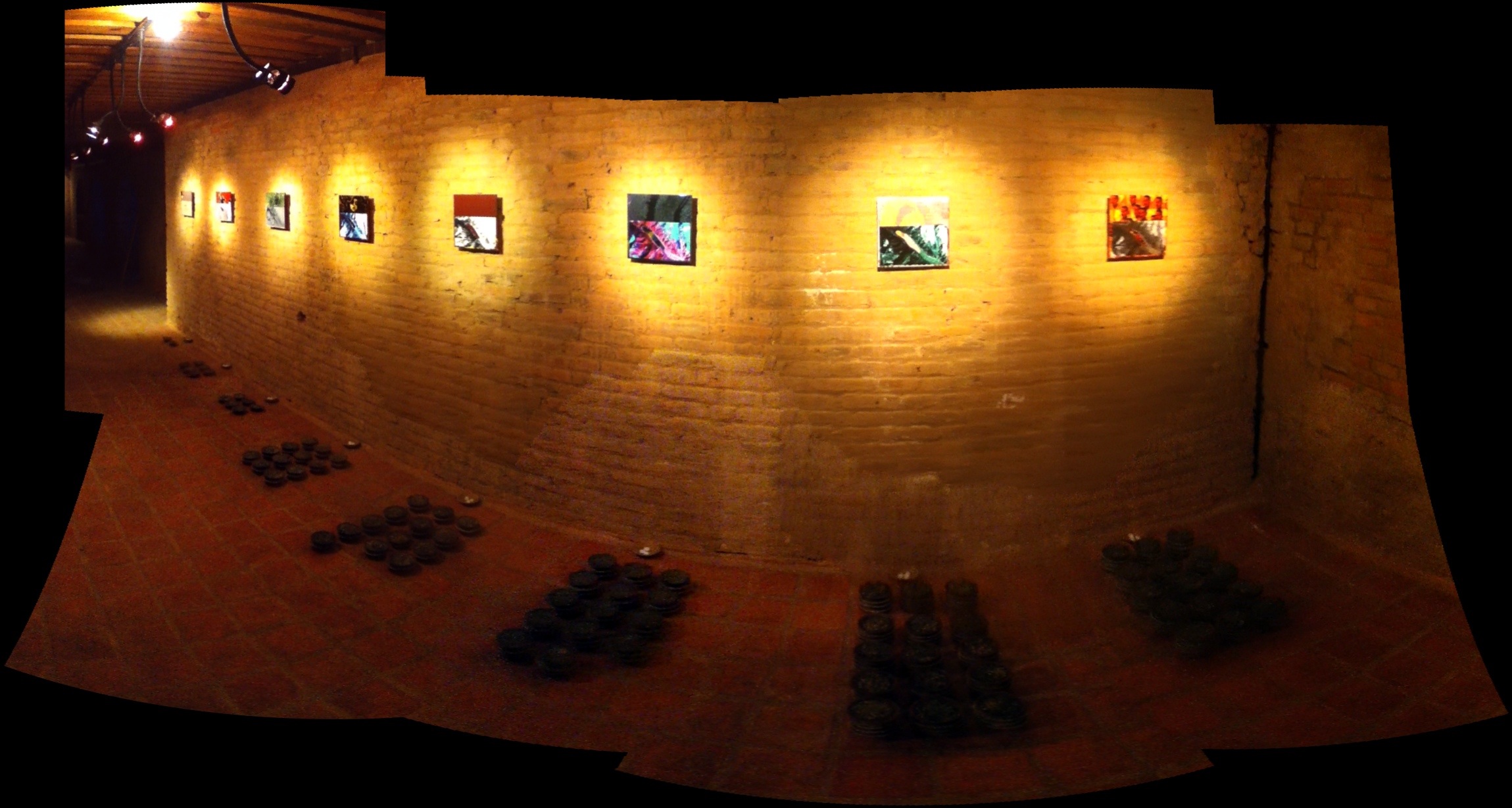
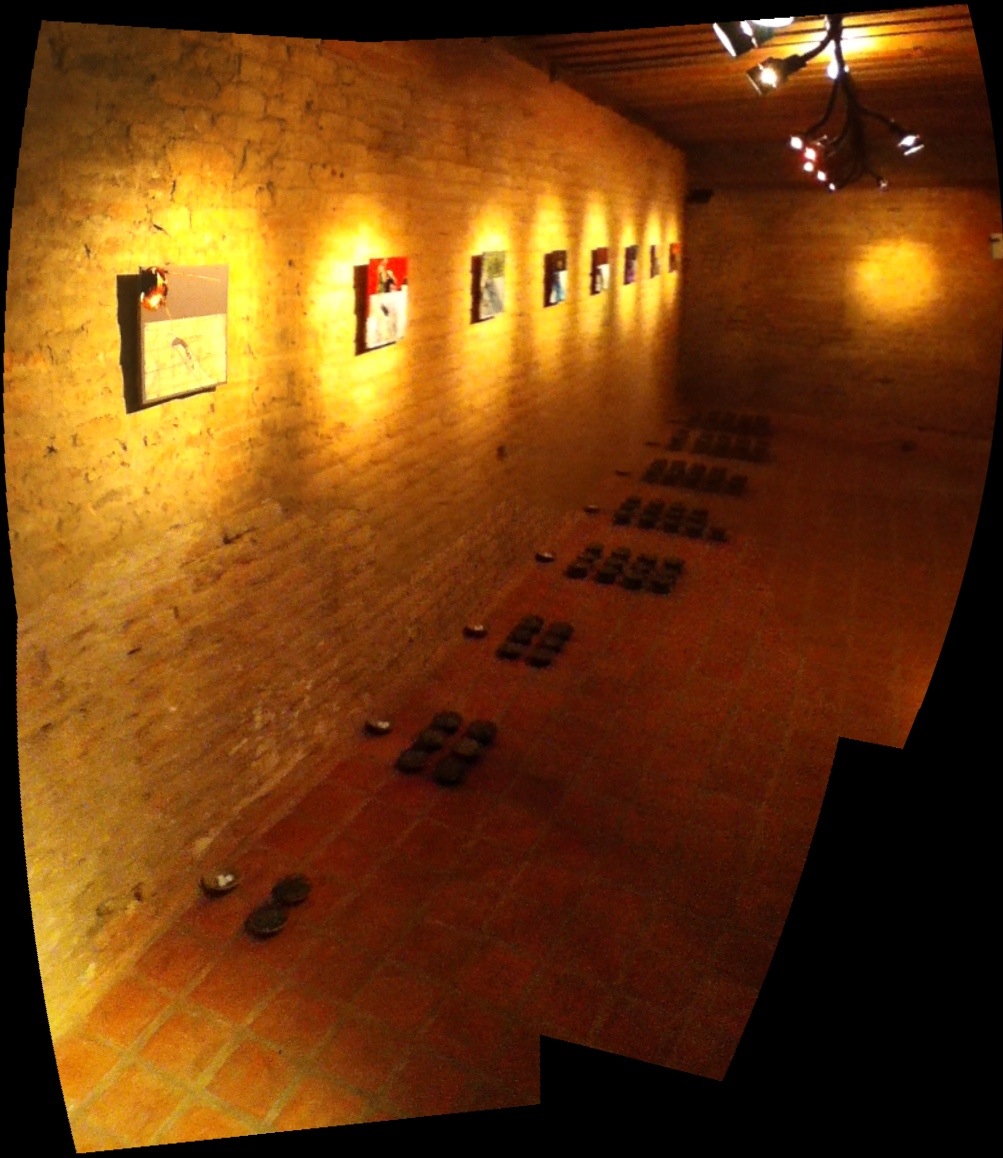
I installed this bio-sculpture at Mul Chowk, Kathmandu (27.672996, 85.325216) for the Kathmandu International Art Festival, the predecessor to the Kathmandu Triennale.
Here is a description of the symbolism and design of the project:
As climate change affects the patterns of cultivation, impacts water resources, causes evolution in diseases, and perpetuates malnutrition and famines, our society will feel a shift in its structures and patterns. In this project “Jamaraa narahalaa” (Jamaraa might not exist), I use Jamaraa (barley seedlings used during the Nepali-Hindu festival of Dashain) as a symbol of Nepalese culture, and use the growth of Tsho Rolpa-- the highest glacial lake in the world-- as an anecdote of global warming, in order to bring the scientific facts of global warming into the context of Nepalese culture and world history. The goal of “Jamaraa narahala” is to encourage the audience to consider how global warming might change society-- particularly the Nepalese society, which is still heavily agricultural.
Tsho Rolpa, in the last six decades, has grown over sixfold in area as a result of glacial melt, providing evidence of global warming. The increasing volume of water poses risks as well as opportunities. In order to depict water as the vehicle of change that it is, I use eight snapshots of Tsho Rolpa in the last six decades, associate a patch of Jamaraa with each snapshot, and provide each patch with an amount of water proportional to the area of the lake with which the patch is associated. The different patches respond differently to the amount of water I provide them; the ones receiving more water grow denser and taller. The size of each patch is also proportional to the area of Tsho Rolpa. The patches are kept at different heights with the height corresponding to the average global temperature during the point in the timeline with which it is associated. Moreover, in order to locate different points in the timeline, I present the images of Tsho Rolpa against the backdrop of some major events in world history.
Each patch of Jamaraa grows on a set of Pyalas which are vessels primarily used by the Newar community to consume alcohol. Alcohol is sacred to many Newars, while it is considered impure by many Hindus. Thus, I bring together aspects of Nepali-Hindu and Newari culture, which are not mutually exclusive; they coexist, despite appearing to contradict each other at times. Finally, I acknowledge that my choice of events in world history, and my choice of Jamaraa-- a Hindu cultural item-- as the representation of the culture of the recently secularized Nepal, are biased.
Here some experiments I did prior to the final installation:
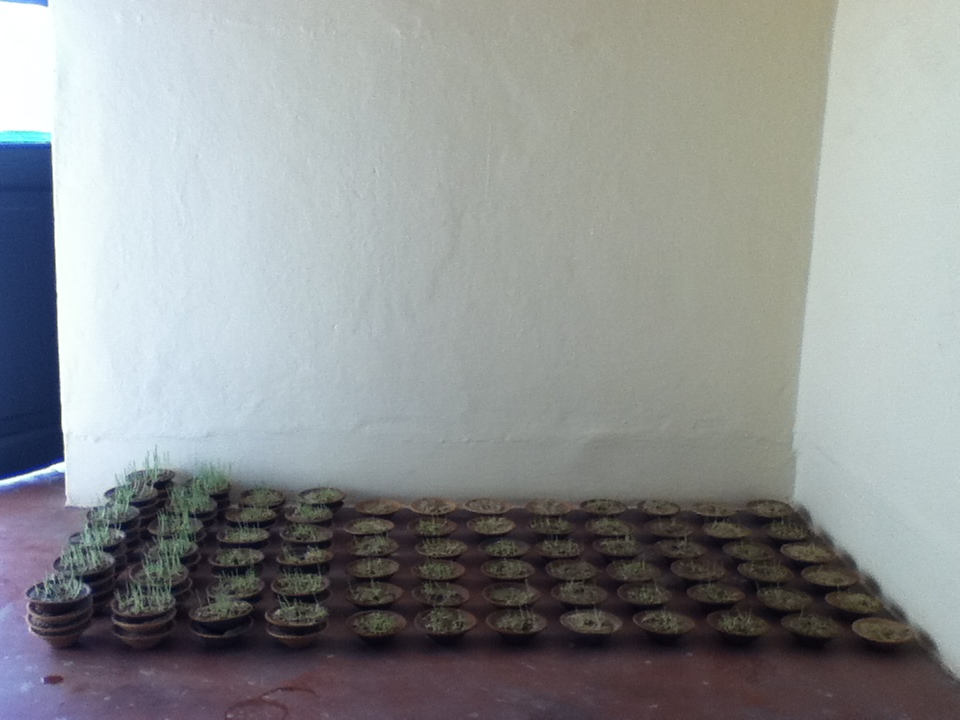
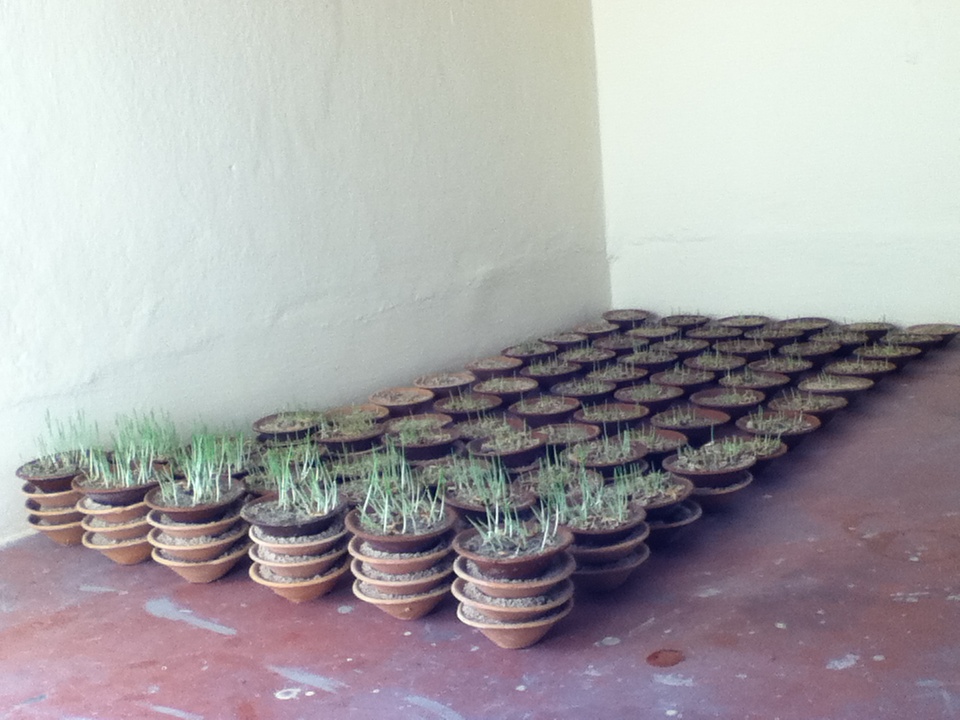
Here are the images used in the installation:
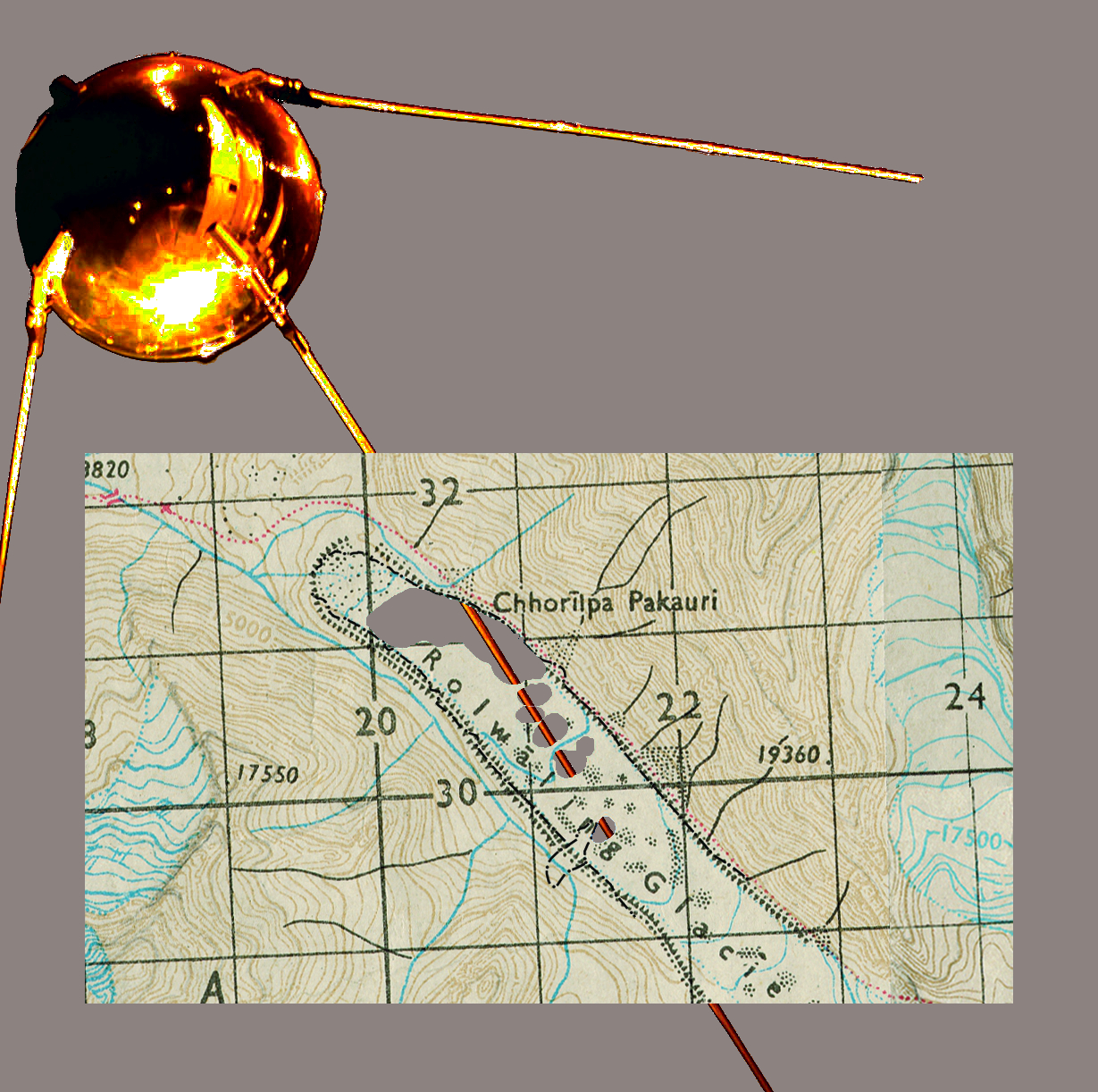
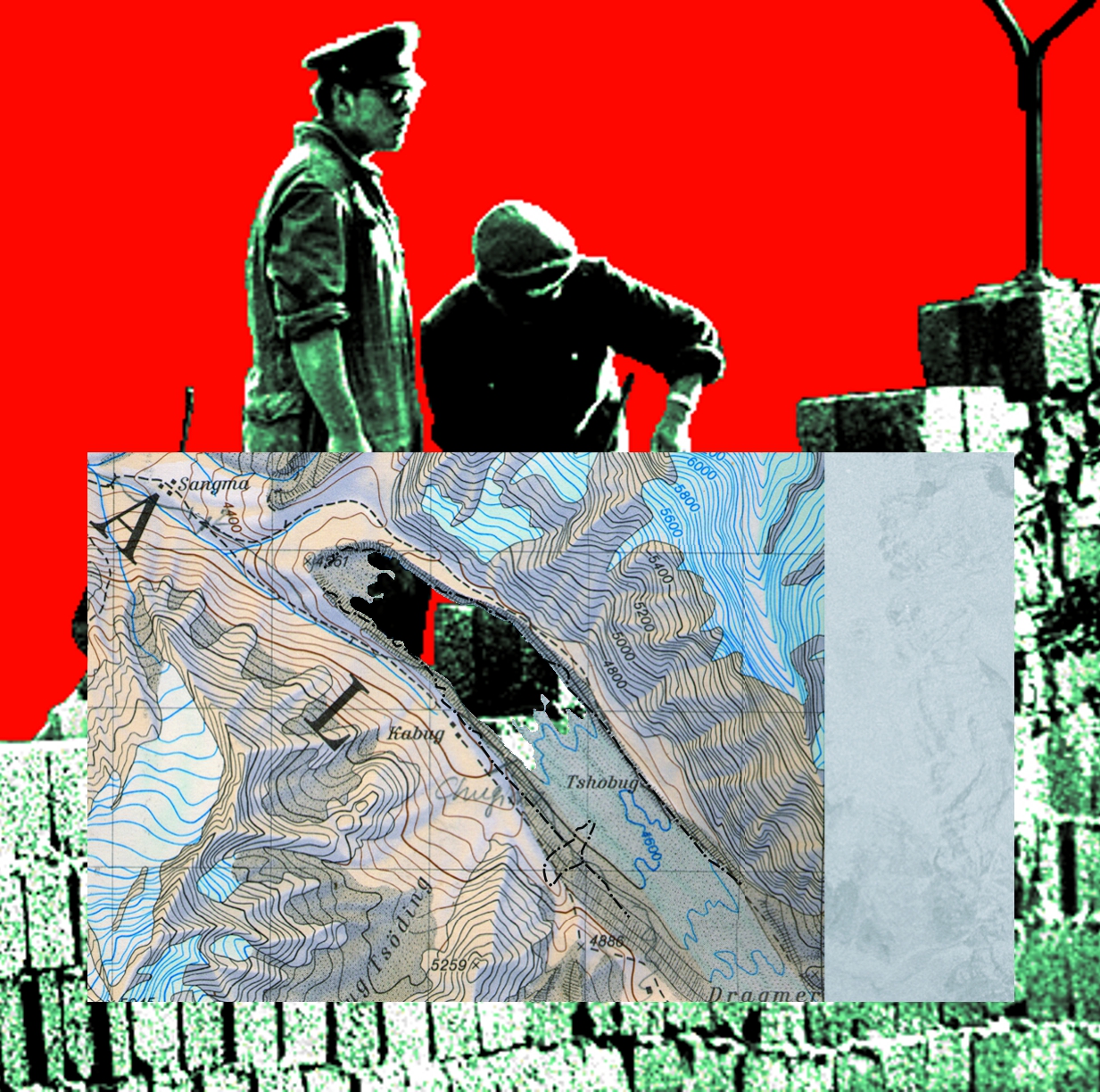
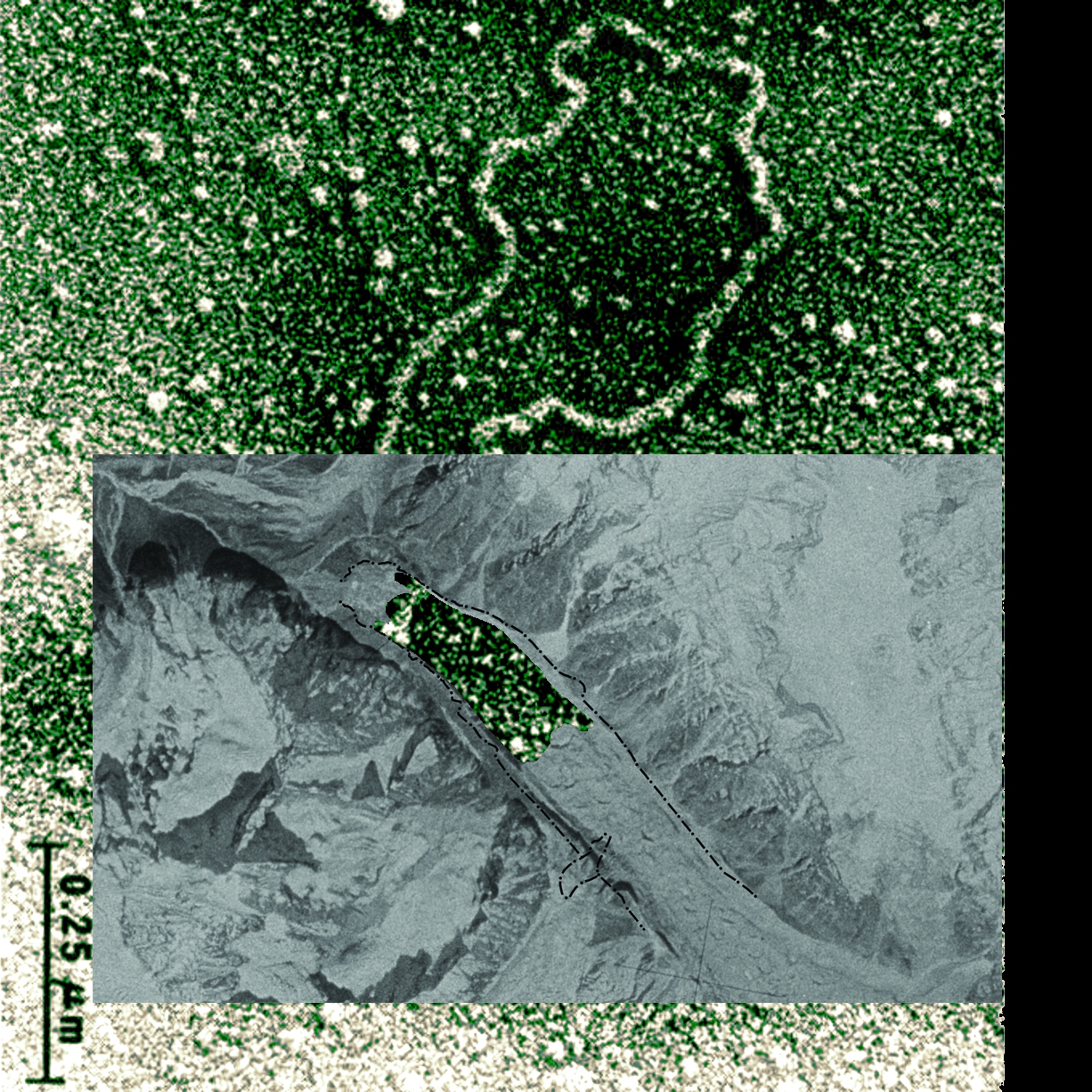
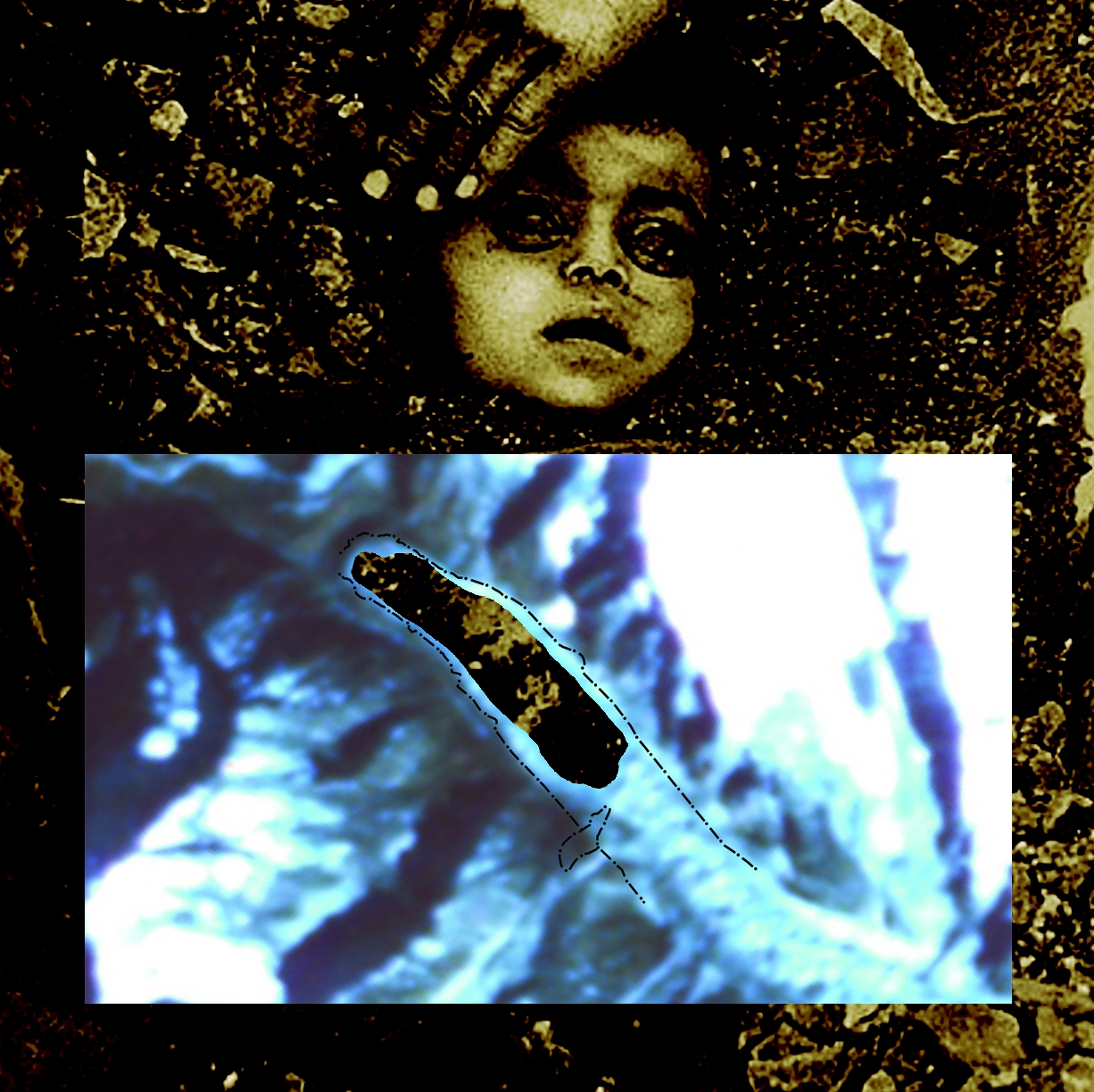
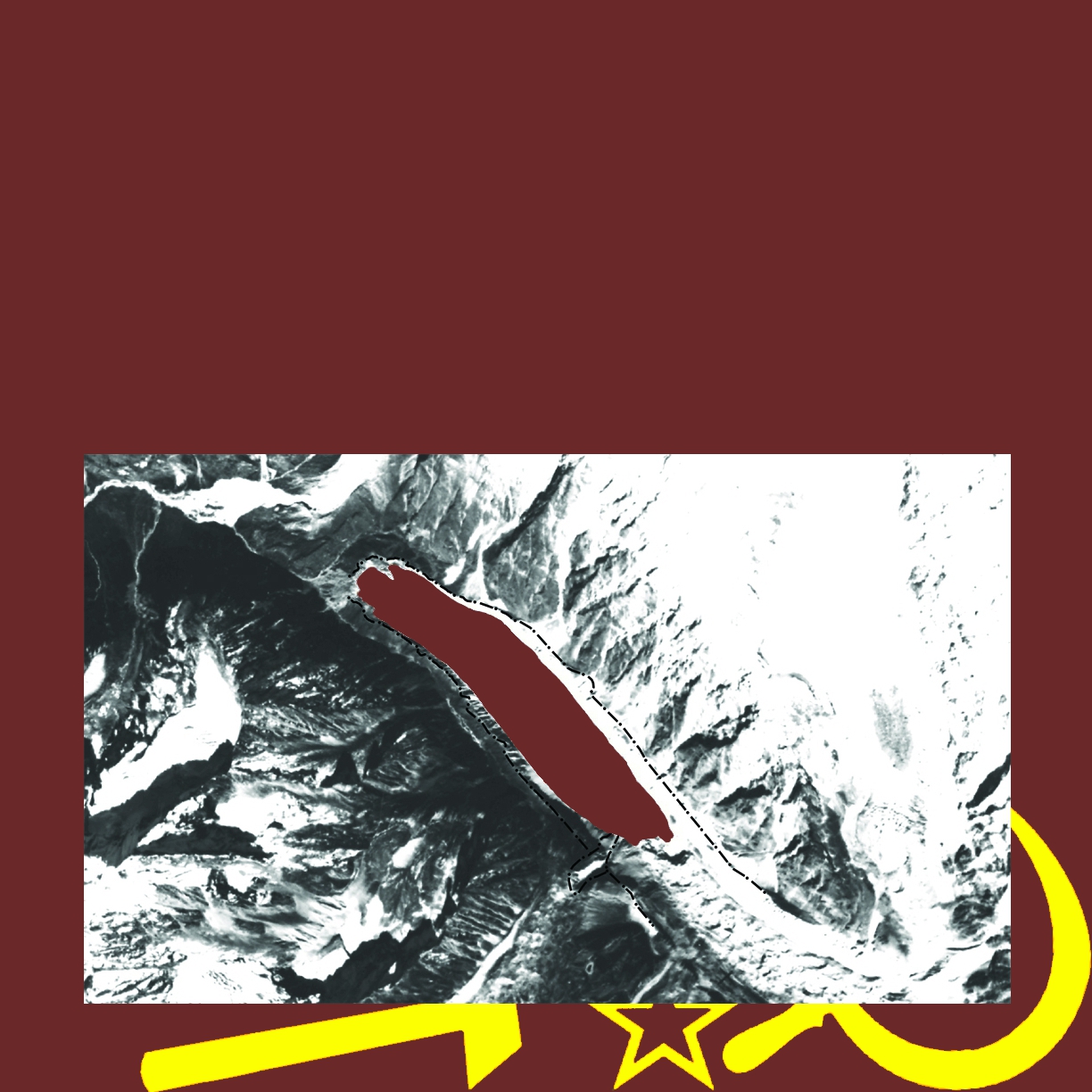
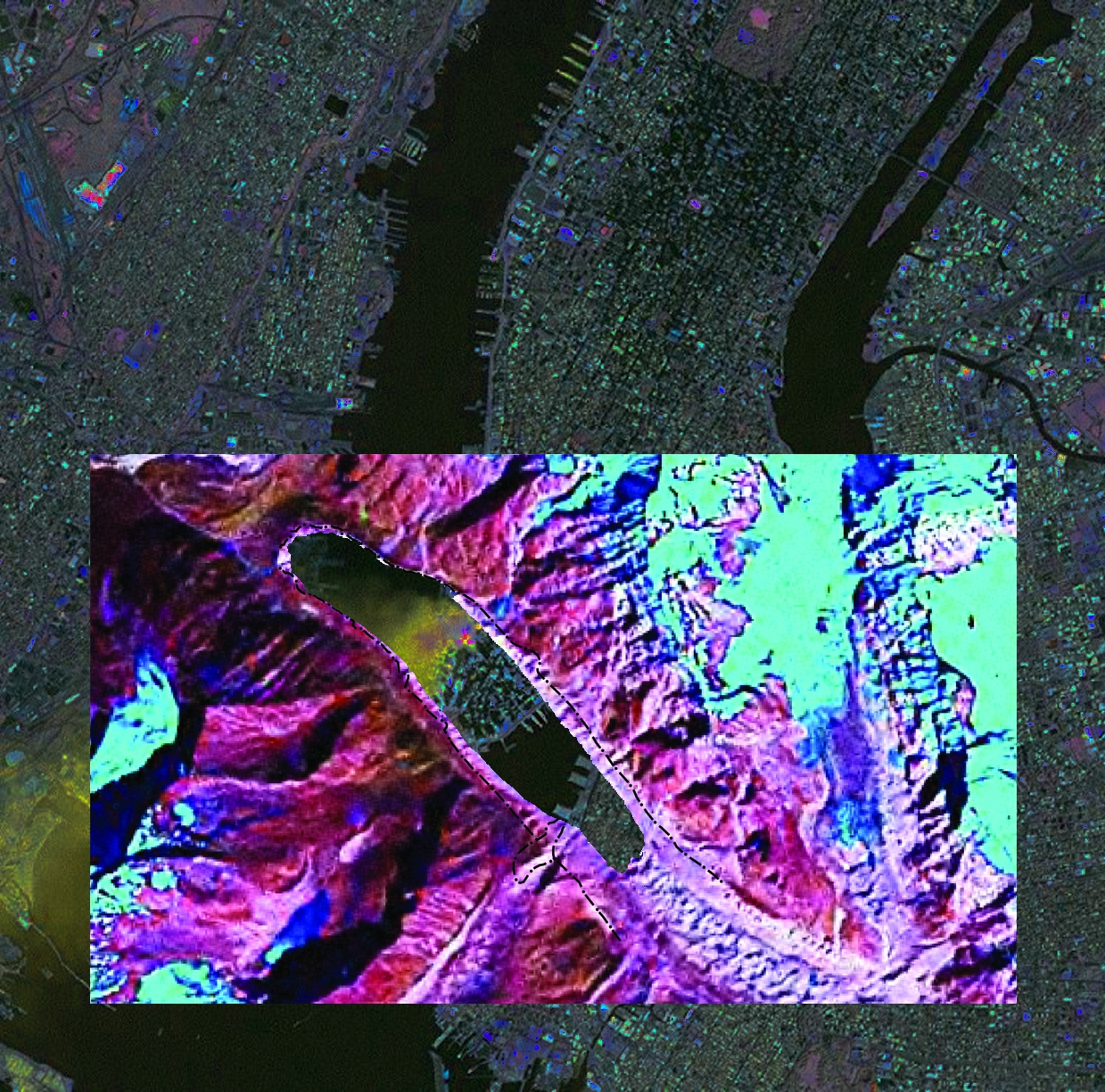
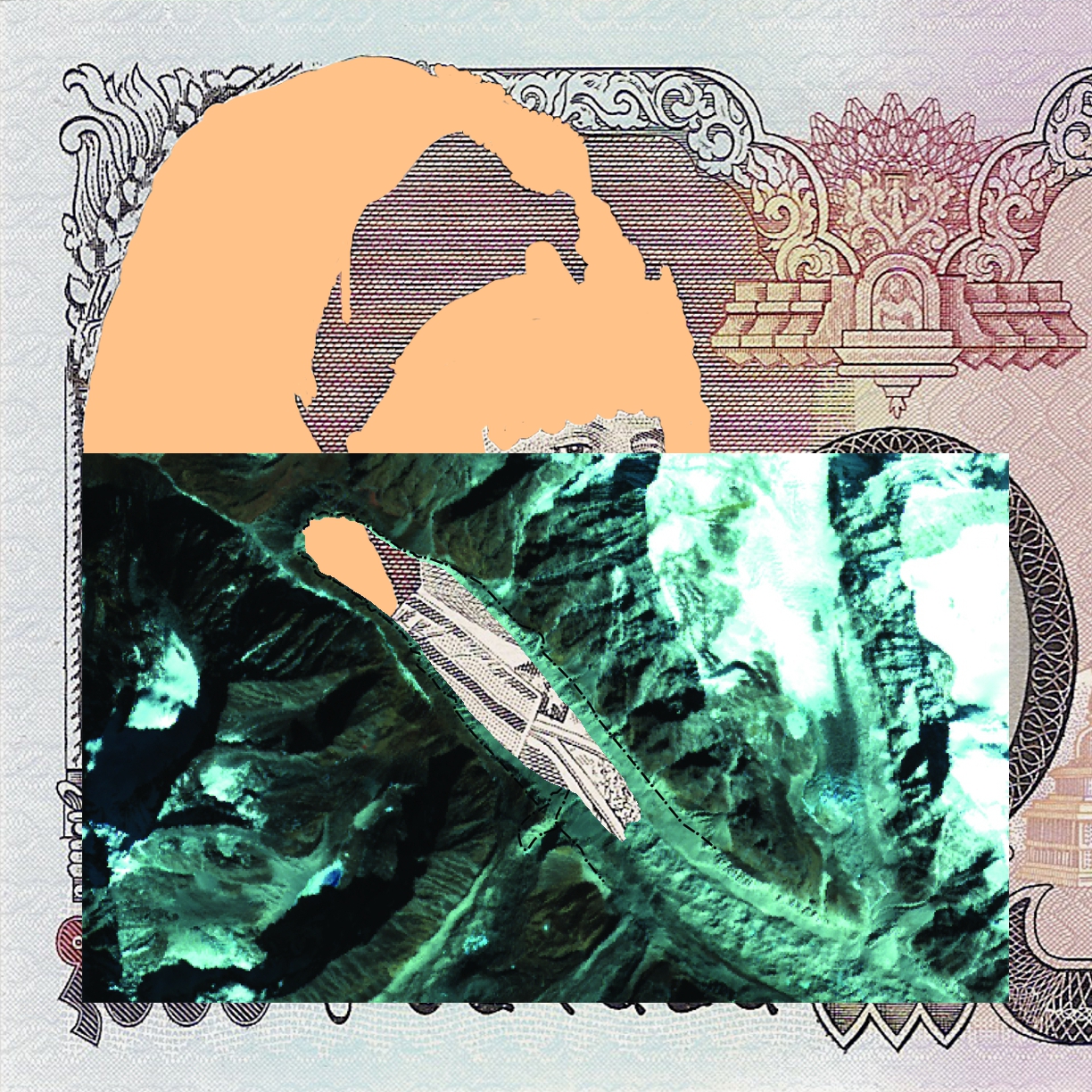
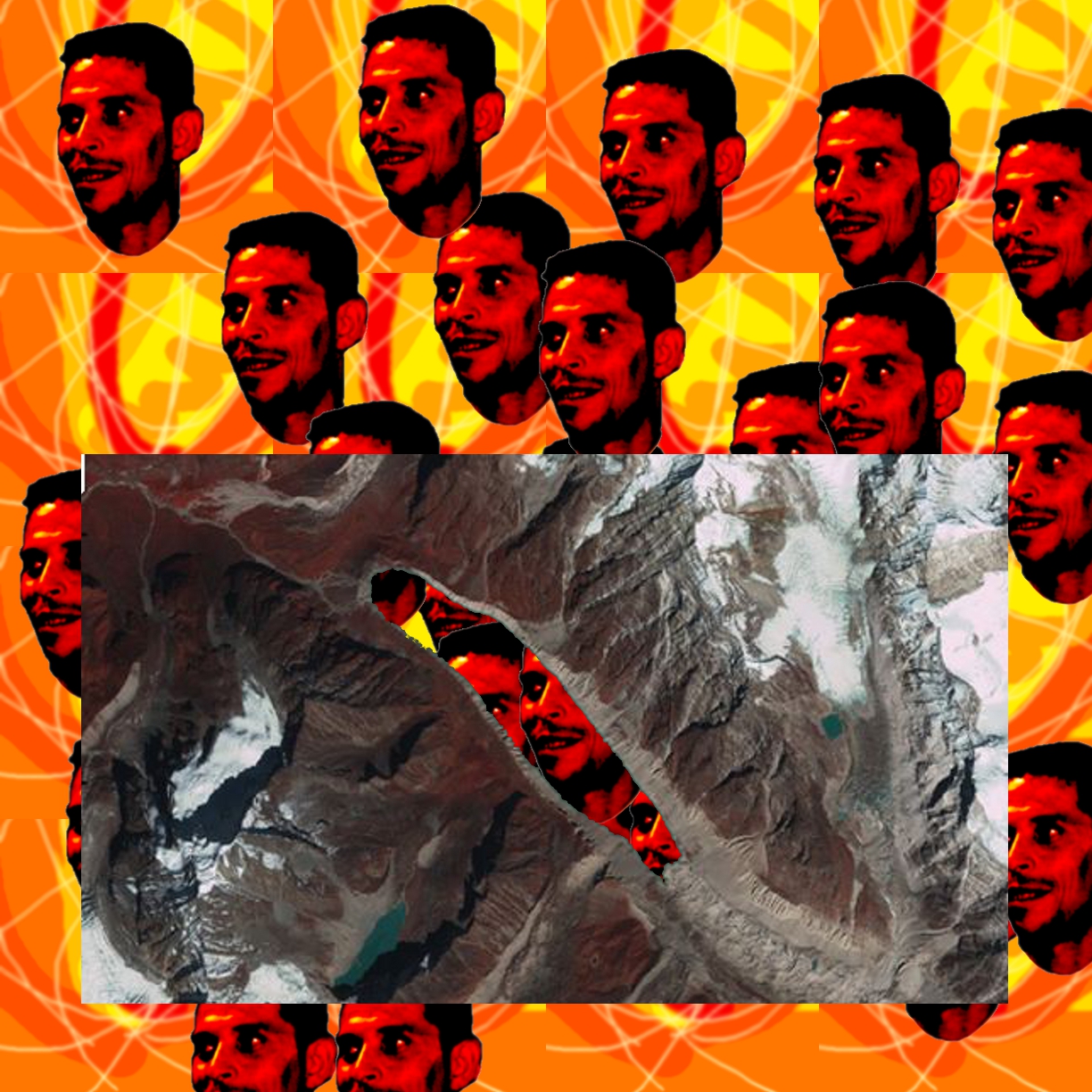
Here is the list of sources of the original images I used:
Development of Tsho Rolpa Lake
ICIMOD (2011) Glacial lakes and glacial lake outburst floods in Nepal. Kathmandu: ICIMOD
retrieved 11-22-2-2012
Tsho Rolpa lake in 2010
retrieved 11-22-2012
Construction of the Berlin Wall
retrieved 11-22-2012
Sputnik 1
retrieved 11-22-2012
Burial of unknown child (Bhopal disaster in India), Photo by Raghu Rai
retrieved 11-22-2012
Photo of New York taken by NASA satellites on September 12, 2001
retrieved 11-22-2012
Mohamed Bouazizi
retrieved 11-22-2012
Soviet Union
retrieved 11-22-2012
Image of a modified DNA molecule
Proceedings of the National Academy of Sciences U S A. 1973 May; 70(5): 1293-1297.
retrieved 11-22-2012
A bank note with the portrait of a Nepalese monarch
retrieved 8-16-2012